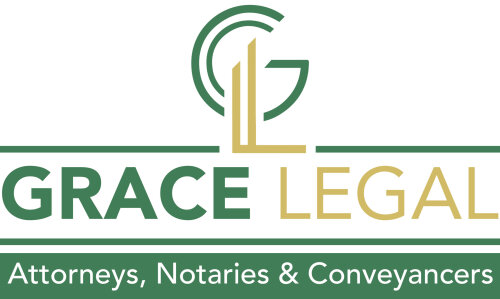Best Licensing Lawyers in Gaborone
Share your needs with us, get contacted by law firms.
Free. Takes 2 min.
List of the best lawyers in Gaborone, Botswana
About Licensing Law in Gaborone, Botswana
Licensing law in Gaborone, Botswana, governs the granting of rights to individuals and businesses to engage in specific activities that are regulated by the government. These may include liquor licensing, business permits, intellectual property licenses, and more. The purpose of these laws is to ensure that activities are conducted legally and that public safety and order are maintained. Understanding licensing requirements is crucial for both new and existing businesses in Gaborone to operate within the legal framework.
Why You May Need a Lawyer
There are several scenarios where seeking legal assistance for licensing is beneficial:
- Business Startups: New businesses often require multiple licenses. A lawyer can streamline the process and ensure compliance with all legal requirements.
- License Renewals: Maintaining current licenses often involves navigating complex regulations. Lawyers can help manage renewals and avoid penalties.
- Intellectual Property: Businesses developing new products or services may need intellectual property licenses. Legal experts can help secure and protect these rights.
- Regulatory Compliance: Industries like healthcare, food and beverage, and construction are heavily regulated. Lawyers ensure that all necessary licenses are obtained and maintained.
- Disputes: If you are facing a legal dispute regarding licensing, professional legal advice can help resolve the matter efficiently.
Local Laws Overview
Licensing laws are governed by various statutes and regulations in Botswana. Here are some key aspects:
- Trade and Liquor Licences Act: This act regulates the issuance of trade and liquor licenses, ensuring businesses adhere to standards of operation.
- Industrial Development Act: Governs the requirements for an industrial license, necessary for manufacturing and industrial business activities.
- Public Health Act: Ensures businesses in food and health sectors comply with health and safety standards.
- Intellectual Property Act: Protects the rights of innovators and creators by regulating copyrights, trademarks, and patents.
- Local Government Regulations: Various by-laws and ordinances specific to Gaborone are also important, affecting everything from zoning to business operations.
Frequently Asked Questions
1. What types of licenses might I need to start a business in Gaborone?
Common licenses include a trade license, an industrial license, a health permit, and specific activity-related permits such as a liquor license.
2. How do I apply for a business license in Gaborone?
You can apply through the Ministry of Investment, Trade, and Industry and local government offices. It's advisable to consult a lawyer for comprehensive guidance.
3. What happens if I don't obtain the necessary licenses?
Failing to obtain required licenses can result in fines, business closure, and legal action against your enterprise.
4. Can I transfer my license to another person or business?
Licenses are generally not transferable. You must apply for a new license if ownership or business structure changes.
5. How long does it take to get a license approved?
The time frame can vary. Some licenses take a few weeks, while others, particularly those needing inspections or special approvals, may take months.
6. What is the cost of obtaining a business license?
Costs vary depending on the type of license. Fees range from hundreds to thousands of Pula. Consult the relevant authorities or a lawyer for specific amounts.
7. Do licenses need to be renewed annually?
Most licenses require annual renewal, although the specific terms depend on the type of license.
8. What are some common reasons for license application denials?
Common reasons include incomplete applications, failure to meet legal requirements, lack of necessary support documents, and non-compliance with zoning laws.
9. Is it possible to appeal a license denial?
Yes, you can appeal. The process involves submitting an appeal to the relevant licensing authority or court, often with legal assistance.
10. How do I know which licenses my business needs?
Consulting with a lawyer or a professional licensing consultant can help identify all the necessary licenses based on your specific business activities.
Additional Resources
Here are some valuable resources and contacts for licensing in Gaborone:
- Ministry of Investment, Trade, and Industry
- Gaborone City Council
- Licensing Division of Trade & Industry
- Registrar of Companies and Intellectual Property Authority (CIPA)
- Botswana Unified Revenue Service (BURS)
- Local Business Advisory Centers
Next Steps
If you require legal assistance in licensing, consider the following steps:
- Identify Your Needs: Determine the type of licenses your business requires.
- Consult a Lawyer: Seek a legal expert specializing in licensing to guide you through the process.
- Gather Documentation: Collect all necessary documentation as advised by your legal counsel.
- Submit Applications: With legal assistance, submit your applications to the relevant authorities.
- Follow Up: Monitor the status of your applications and comply with any additional requirements to facilitate approval.
By following these steps and seeking the right legal advice, you can navigate the complexities of licensing in Gaborone, Botswana, smoothly and efficiently.
Lawzana helps you find the best lawyers and law firms in Gaborone through a curated and pre-screened list of qualified legal professionals. Our platform offers rankings and detailed profiles of attorneys and law firms, allowing you to compare based on practice areas, including Licensing, experience, and client feedback.
Each profile includes a description of the firm's areas of practice, client reviews, team members and partners, year of establishment, spoken languages, office locations, contact information, social media presence, and any published articles or resources. Most firms on our platform speak English and are experienced in both local and international legal matters.
Get a quote from top-rated law firms in Gaborone, Botswana — quickly, securely, and without unnecessary hassle.
Disclaimer:
The information provided on this page is for general informational purposes only and does not constitute legal advice. While we strive to ensure the accuracy and relevance of the content, legal information may change over time, and interpretations of the law can vary. You should always consult with a qualified legal professional for advice specific to your situation.
We disclaim all liability for actions taken or not taken based on the content of this page. If you believe any information is incorrect or outdated, please contact us, and we will review and update it where appropriate.

















